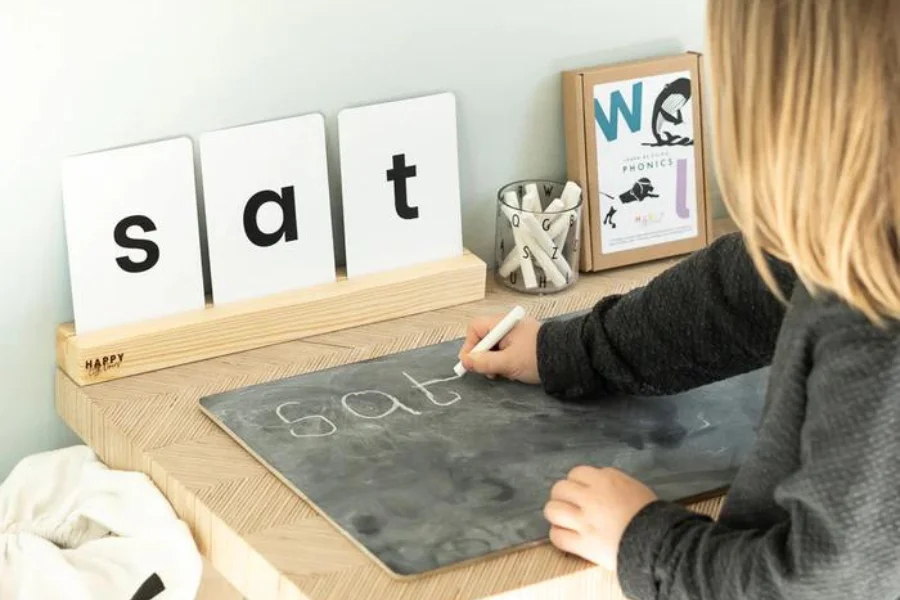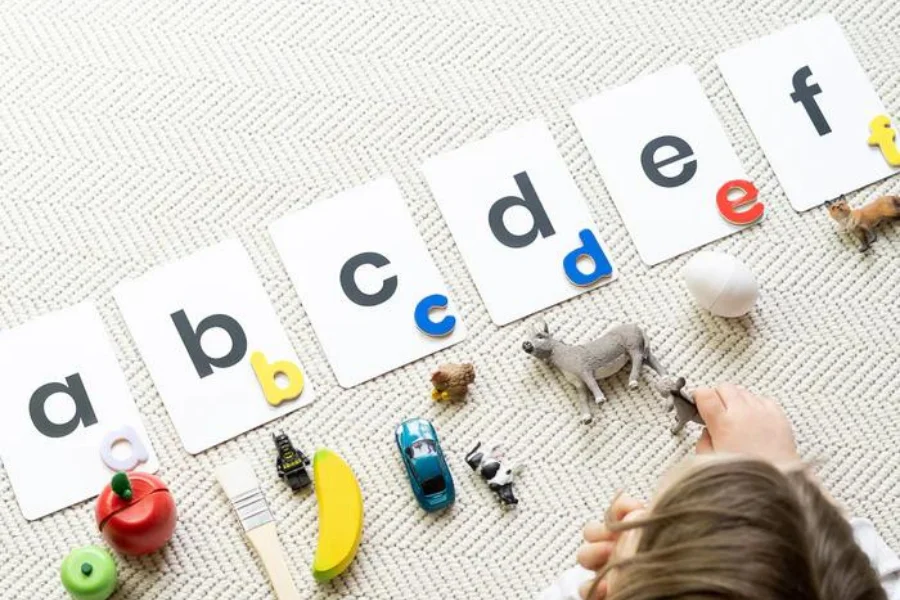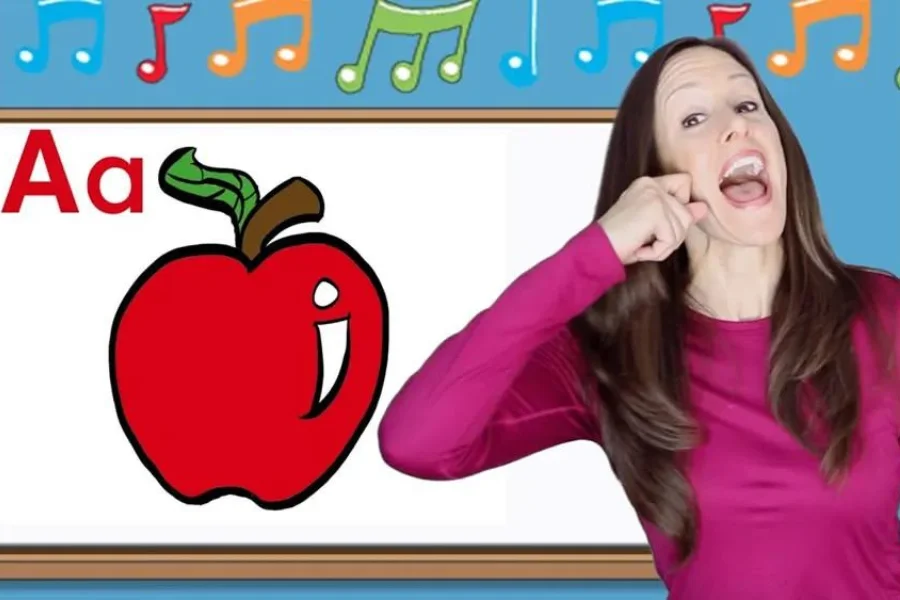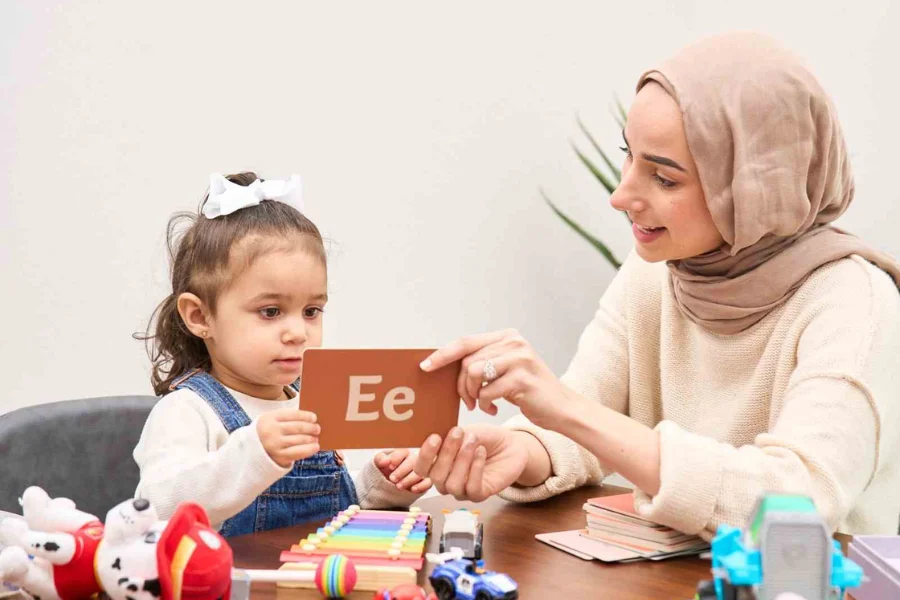Phonics Tricky Words

Source: readingeggs
Phonics Tricky Words
Understanding Phonics Tricky Words is essential for anyone beginning their journey in learning English. These words, often challenging for early readers, defy the standard rules of phonics, making them a unique aspect of language learning. This blog aims to demystify Phonics Tricky Words, providing simple strategies and tips to master them effectively.
With a focus on hands-on learning, we will discover different Phonics Tricky Words, making sure that readers gain confidence in their reading and writing abilities. This method is not just about remembering but about understanding the details that make English an interesting and dynamic language.
Table of Content

Source: shopify
What are the Tricky Words in Phonics?
Tricky words in phonics are an interesting aspect of learning English. They are words that do not use the typical phonetic rules, making them exciting for students to decode using standard phonics methods. Knowing these tricky words in phonics is important for increasing strong reading and writing abilities.
Defying Phonics Rules
Different from regular words, tricky words cannot be sounded out simply in phonics due to their non-phonetic spelling. They often have silent letters or sounds that differ from their spelling.
Examples
Words like said, they, and who are classic examples of tricky words in phonics. They cannot be decoded through regular phonics patterns.
Phonics Tricky Words List
Phonics tricky words, often a hurdle in early literacy, are words that don’t follow the usual rules of phonics. This makes exciting for students to decode using the usual sound-to-letter communications. Considering phonics tricky words is important in increasing reading fluency and writing.
To join Phonics Training Course, Call / Whatsapp +919869866277 / +919869546913.
To download brochure of Phonics Training Course, Click Here!
Phonics Tricky Words Activities
Phonics Tricky Words Activities are important in any language learning curriculum, specifically for young children. These activities aim to help students understand words that don’t follow the usual phonetic rules, making them ‘tricky’ to learn. Here, we’ll explore into 10 engaging Phonics Tricky Words Activities, each designed to increase understanding and holding of these unique words.
Flashcard Fun
Create flashcards with tricky words and their meanings. Show these cards to students, and ask them to say the word out loud. For example, flashcards for words like ‘said’ and ‘they.’
Memory Matching Game
Develop a game where students match tricky words with their meanings or with pictures illustrating them. It’s a playful way to reinforce their understanding.
Bingo with Tricky Words
Create bingo sheets filled with phonics tricky words. As you call out the words, students mark them. This activity is a favourite for its fun and competitive edge.
Fill-in-the-Blanks
Prepare sentences with missing phonics tricky words. Examine children to fill in the blanks with the right word. For instance, She ___ (said) she would come.
Word Hunt
In this Phonics Tricky Words Activity, students search for tricky words in a paragraph or story. This not only helps in word recognition but also in understanding context.
Story Creation
Encourage students to write short stories using a list of tricky words. This activity aids in creative use and deeper understanding of these words.
Word Sorting
Have students sort words into phonics tricky words and regular phonetic words. This reinforces the difference between regular and tricky words.
Tricky Word Jigsaw
Create jigsaw puzzles with tricky words. Each correctly assembled word helps reinforce spelling and recognition.
Role-play Reading
Students can perform a skit using scripts that contain phonics tricky words. This method helps in memorizing through action and speech.
Tricky Word Art
Students draw or paint a picture and incorporate tricky words into their artwork. This creative approach makes learning enjoyable and memorable.
Incorporating these Phonics Tricky Words Activities into your teaching method can greatly enhance the learning experience. They not only make the process of learning phonics tricky words more enjoyable but also more effective.
To join Phonics Training Course, Call / Whatsapp +919869866277 / +919869546913.
To download brochure of Phonics Training Course, Click Here!

Source: shopify
Tricky Words Sentences
Tricky Words Sentences are an important part of learning English, specifically when it comes to phonics tricky words. These words usually test students as they don’t use the standard phonics rules, making reading and spelling a bit more complex. Knowing and using these phonics tricky words in sentences is important for effective communication.
Let’s explore examples of Tricky Words Sentences, each demonstrating the unique usage of a phonics tricky word:
Word: Enough
- Sentence: She had enough apples to make a large pie.
- Explanation: ‘Enough’ defies typical phonetic pronunciation, making it a classic phonics tricky word.
Word: Friend
- Sentence: My best friend stays just around the corner.
- Explanation: The ‘ie’ in ‘friend’ is pronounced as /ɛ/, which is uncommon in English phonics rules.
Word: Said
- Sentence: I would be late at night. he said
- Explanation: ‘Said’ is pronounced as /sɛd/, not as /saɪd/, as student may know from its spelling.
Word: Does
- Sentence: Does she know the way to the park?
- Explanation: ‘Does’ is pronounced as /dʌz/, which is unexpected based on its spelling.
Word: Island
- Sentence: We spent our vacation on a remote island.
- Explanation: The ‘s’ in ‘island’ is silent, a tricky aspect for learners.
Word: Knock
- Sentence: Please knock on the door before entering.
- Explanation: The ‘k’ in ‘knock’ is silent, making it a phonics tricky word.
Word: Hour
- Sentence: It takes an hour to drive to the city.
- Explanation: ‘Hour’ starts with a silent ‘h’, which can confuse phonics learners.
Word: Write
- Sentence: Write your name on the top of the sheet Please.
- Explanation: The ‘w’ in ‘write’ is silent, and the ‘ite’ is not phonetically natural.
Word: Two
- Sentence: She bought two tickets to the show.
- Explanation: ‘Two’ is pronounced as /tuː/, with a silent ‘w’, a common issue in phonics tricky words.
Word: Laugh
- Sentence: The joke was so amusing that we couldn’t help but laugh.
- Explanation: The ‘augh’ in ‘laugh’ is pronounced as /æf/, which is uncommon.
In these Tricky Words Sentences, we see how phonics tricky words usually needs remembering and practice due to their non-phonetic nature. Grasping these words is key to fluency in English, and with consistent practice, learners can easily overcome the challenges they present. Remember, mastering phonics tricky words is a significant step in becoming proficient in English.
To join Phonics Training Course, Call / Whatsapp +919869866277 / +919869546913.
To download brochure of Phonics Training Course, Click Here!

Source: timg
Why are Tricky Words Important?
Knowing why tricky words are significant in phonics is a key step in learning the English language. Phonics tricky words, usually exciting for students, play an important role in reading and writing.
Here’s why focusing on these words is essential:
Bridging Gaps in Phonics Rules
Phonics tricky words don’t use the typical phonics rules. Learning them helps link the gaps that these irregularity create in the phonetic system, making sure of a more complete knowledge of English phonics.
Enhancing Reading Fluency
Knowing phonics tricky words fast and exactly is important for reading fluency. As these words frequently appear in text, mastering them can significantly speed up reading and aid in smoother comprehension.
Boosting Confidence
When learners understand why tricky words are important and master them, it boosts their confidence. This confidence, in turn, increase their complete learning experience in phonics and language achievement.
Including phonics tricky words into learning is not just about remembering exceptions; it’s about knowing the details of English phonics. Understanding the significance of tricky words in phonics paves the way for a more complete and effective method to language learning. By focusing on why tricky words are essential, teachers and students together can approach phonics with the consideration that these words are not just obstacle, but useful building blocks in learning the language.
To join Phonics Training Course, Call / Whatsapp +919869866277 / +919869546913.
To download brochure of Phonics Training Course, Click Here!
Why Tricky Words is Difficult for Children to Read and Spell?
Phonics tricky words usually pose an important challenge for children in their first reading and spelling journey. Knowing why these words are hard for children to read and spell is important in talking about their learning needs effectively.
Difficulties in Reading and Spelling Phonics Tricky Words:
Irregular Patterns
Unlike regular words that follow phonetic rules, phonics tricky words often break these rules. This irregularity can confuse children who are just starting to understand the basic phonics principles.
Memory-Based Learning
Phonics tricky words require a different approach. Instead of decoding, children must memorize them, which can be daunting and less intuitive than sounding out words phonetically.
Limited Contextual Clues
In many cases, phonics tricky words do not provide enough contextual clues. Children cannot rely on the context of a sentence to decipher these words, making them harder to read and understand.
Frequency in Language
These words are often used in the English language, making it vital for children to learn them. However, their high frequency also means that children meet these difficulties regularly, which can be overwhelming.
Visual and Auditory Similarities
Many phonics tricky words have close visual or auditory resemblances to other words, leading to confusion. Children may mix up these words, affecting their reading fluency and spelling perfection.
Knowing the unique challenges phonics tricky words given to children is the first step in helping them overcome these problems. With the right tactics and support, children can successfully know the difficulties of these words, paving the way for a more confident and capable reading and spelling voyage.
To join Phonics Training Course, Call / Whatsapp +919869866277 / +919869546913.
To download brochure of Phonics Training Course, Click Here!

Source: uploads
Phonics Course for Teachers
The Phonics Course for Teachers provided by Vidhyanidhi Education Society (Govt. regd.) stands out as a life changing educational experience for teachers motivated on learning the art of teaching phonics. This course is precisely designed to prepare teachers with the abilities necessary to efficiently tell the details of phonics tricky words and sounds.
18 Hours Intensive Training
The Phonics Course for Teachers is an 18-hour intensive program, making sure of a deep and thorough knowledge of phonics. This duration is perfectly adjusted to cover all features of phonics education without overwhelming the members. The focused nature of the training makes sure that each hour is filled with valuable learning experiences, making it a highly effective way to learn.
UK-based Synthetic Phonics Teaching Methodology
The course follows the popular UK-based Synthetic Phonics Teaching and Learning Methodology. This approach is globally recognized for its effectiveness in teaching phonics tricky words and is considered a gold standard in phonics education. By aligning with this methodology, the course ensures that teachers are learning techniques that are both contemporary and proven.
Audio-Visual Teaching Aids
Teachers are developed through the use of audio-visual teaching aids. This addition of technology makes the learning process more exciting and real, specifically when dealing with the details of phonics tricky words. Audio-visual helps in better holding of concepts and enable a more interactive learning environment.
Demonstration with Jingles, Stories, and Actions
The course creatively employs jingles, stories, and actions for the demonstration of sounds. This approach not only makes the learning process fun but also aids in the easier understanding and memorization of phonics tricky words. These methods cater to various learning styles, ensuring that all participants can benefit.
Practice of 42 Sounds
A thorough exercise of all 42 sounds, including letter sounds and digraphs, is an important part of the Phonics Course for Teachers. This thorough practice makes sure that teachers are well-equipped to solve all the common and uncommon phonics tricky words that they may get in their teaching careers.
Mock-drills
The course includes practical mock-drills, providing teachers with a hands-on experience in teaching phonics. These drills are invaluable in helping teachers gain confidence and expertise in handling a classroom setting while teaching phonics tricky words.
Doubt-Solving and Question-Answer Sessions
To ensure clarity and comprehension, the Phonics Course for Teachers incorporates regular doubt-solving and question-answer sessions. These sessions are useful in talking about individual problems and making that each member completely understands the course content, specifically when it comes to the difficulties of phonics tricky words.
The Phonics Course for Teachers provided by Vidhyanidhi Education Society (Govt. regd.) is a complete program that covers all sides of phonics teaching. It’s an ideal choice for teachers looking to increase their skills in teaching phonics tricky words, using a mix of old-style and creative teaching methods. This course is not just an educational journey but a stepping stone towards becoming a capable and talented phonics teacher.
Join Vidhyanidhi’s Phonics Course now – transform your teaching journey today!
To join Phonics Training Course, Call / Whatsapp +919869866277 / +919869546913.
To download brochure of Phonics Training Course, Click Here!
FAQs
How do one can become a Certified Phonics Teacher?
To become a Certified Phonics Teacher, finish a phonics teacher training course from Vidhyanidhi Education Society (Govt. regd.), gain knowledge and experience, and get certification.
Which is the Best Institute for Phonics Teacher Training Course?
The best institute for Phonics Teacher Training like VES; seek accredited programs known for comprehensive, hands-on training.
What is the duration to be a Phonics Teacher?
For Becoming a Phonics Teacher it usually takes a week months to a month, depending on the course strength and your previous experience.




